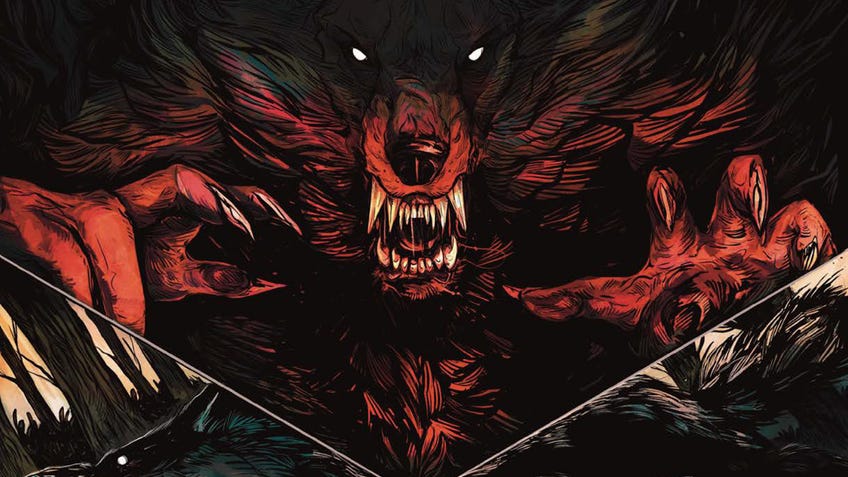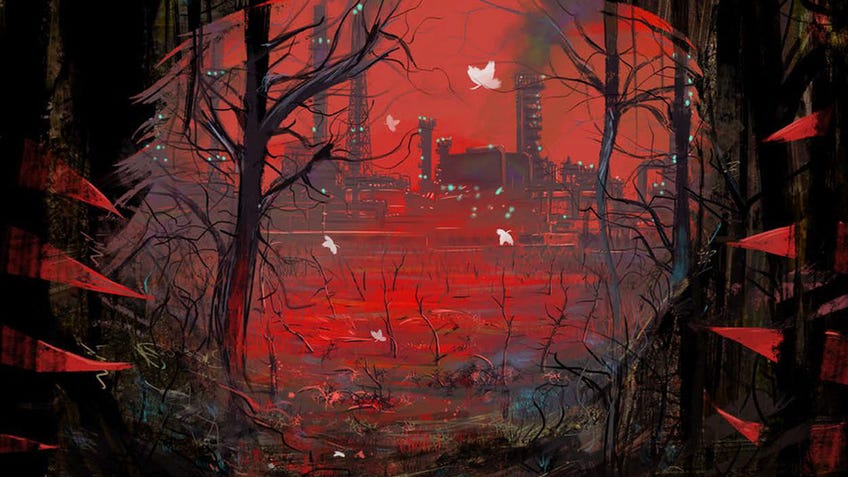Werewolf: the Apocalypse 5E writer alleges racist and belittling treatment by White Wolf staff
Writing team reportedly asked to create “a player’s guide to being a Nazi werewolf”
A tabletop RPG writer hired to work on the latest edition of Werewolf: the Apocalypse alleges discriminatory and dismissive treatment by staff members of White Wolf and Paradox Interactive, apparently including the use of anti-Indigenous slurs and a dogged dedication to Indigenous erasure within the tabletop RPG’s fictional world.
In July, J.F. Sambrano posted to Patreon a public account of their tenure as a contract writer on Werewolf: the Apocalypse 5th Edition. Werewolf was originally published in 1992 as an extension of the World of Darkness, largely pushed by the popular Vampire: the Masquerade. It centred Indigenous representation in a very ‘90s way, meaning plenty of stereotypes, misconceptions and blatant racism were trucked in to the foundations of Werewolf’s worldbuilding.
Sambrano says that Hunters Entertainment approached them in February 2020 with an offer to work as a primary writer on the upcoming fifth edition of Werewolf, likely due to their previous work in the World of Darkness tabletop community but also their heritage with the Cora Indian and Chiricahua Apache peoples. Sambrano accepted the offer on several conditions: they were unwilling to create or enshrine negative stereotypes of Indigenous Peoples, appropriate concepts or erasure of those peoples in the text.
“I was overall receptive to the invitation, largely because I was very passionate about the World of Darkness setting overall, and Werewolf in particular, due to the impact that 90's representation had on me when I was a younger gamer,” Sambrano wrote in the Patreon post. “I also felt hopeful that with a really hard rewrite of Indigenous aspects of the game that I could shift a lot of really painful aspects of the game into something that was a net positive for Indigenous representation.”
Sambrano alleges difficulties between Karim Muammar, White Wolf’s brand editor, and the writing team emerged early in their relationship. The setting for Werewolf 5E reportedly built the Sword of Heimdall as a primary antagonist. This militantly fascist sect of the larger Get of Fenrir faction are described by Sambrano as “literal Nazis”, but Sambrano and the writing team wanted to couch that portrayal amidst a younger generation that challenged their forebears’ extremist views.
Muammar allegedly pushed against this portrayal, suggesting that the writing team were “cowardly social justice warriors for being unwilling to work with this concept”. Sambrano and the team allegedly submitted several versions of an anti-fascist Fenrir culture that didn’t lump the entire people into one bucket. Doing so, they argued, meant effectively writing “a player’s guide to being a Nazi werewolf”, something Sombrano and the rest of the writers were unwilling to do.

The editor allegedly refused to capitalize Native American and Indigenous in editing notes and communication, continually used “savage” as a descriptor for entire tribes despite being told that it was a harmful slur, and denied changing the name of two Pure Ones tribes - the Uktena and W*ndigo - even after he was informed of their appropriative and disrespectful use of Indigenous beliefs.
“Muammar felt that having two Tribes (both Younger and Older Brother) representing the “Indigenous population” was too many,” Sambrano wrote. They also focused their efforts on several other important elements: changing or removing the term Pure Tribe from the game, altering ‘totem’ to ‘patron’ in mechanical use, move away from terms such as Metis and Skin Dancer, and highlight the bulk of “cultural theft happening from the beginning of Werewolf until now”.
Sambrano alleges that Muammar’s belitting and dismissive attitude had a negative impact on the whole writing team, and especially themself. They claim to have volunteered dozens of hours of free cultural consultancy in order to defend what they believe were apparent improvements to Werewolf’s sordid history with Indigienous culture, only to be ignored, stonewalled or implicitly insulted.
By the time Sambrano decided to bring Muammar’s behaviour to Hunter’s Entertainment’s management, the publisher had brought work on the RPG sourcebook in-house and dismissed the writing team from their duties. Sambrano claimed that many of their proposed changes did make it into the final version of Werewolf 5E, but the entire ordeal has soured them on ever working on another tabletop RPG project because of their experience as an Indigenous Person in the industry.
“I am glad the harmful, appropriative terms were removed from the setting. I am glad I was part of the fight to make that real. I am not so glad that I was treated with hostility and racism by Muammar for the effort and love I put into this work,” Sambrano wrote. “...I didn’t have the opportunity to properly acknowledge how much of Werewolf’s base themes and setting are twisted and tied-up in Indigenous appropriation without giving the proper acknowledgments.”
Dicebreaker reached out to Paradox Entertainment for comment from the company and to Muammar but did not receive a reply by time of publication.

